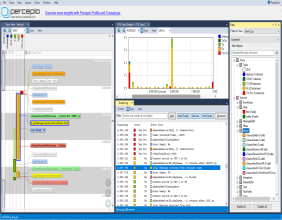Highlights
- Asian equities witnessed a decline following remarks from the US central bank.
- Concerns over inflation resurgence and economic moderation surfaced after trade-related developments.
- Oil prices eased amid attention on geopolitical developments in the Middle East.
Asian markets, including several constituents listed under the FTSE, experienced downward movement following updated commentary from the United States central bank. The session revealed renewed caution across the region after the Federal Reserve pointed to renewed inflation pressures and forecast a softer economic environment.
Monetary Policy Sentiment Impacts Regional Indices
Recent commentary from the Federal Reserve contributed to subdued sentiment across various equity markets. The central bank emphasized ongoing concerns regarding inflation and labour market changes. Despite acknowledging strength in broader economic metrics, the institution refrained from any immediate shift in interest rates.
Companies under benchmarks such as the FTSE 100 and FTSE 350 reflected these broader shifts, with several firms observing declines in share prices during early trade.
Trade Policies and Economic Forecast Revisions
A downward revision in growth outlook accompanied by revised projections on inflation and employment contributed to the weaker tone in markets. The Federal Reserve indicated that international trade dynamics, especially tariff implementations, have introduced new variables to the macroeconomic narrative.
The commentary also highlighted that tariff adjustments may affect pricing structures and corporate input costs. This could have further implications for manufacturing-linked stocks in both domestic and global sectors, including companies listed on the FTSE AIM 100 Index.
Oil Markets React to Geopolitical Developments
Crude prices slipped modestly during the session, with market participants monitoring evolving circumstances in the Middle East. The conflict between Israel and Iran remained a focal point for commodity-linked indices, impacting the energy sector broadly.
Despite the ease in prices, the underlying sentiment was described as watchful. Entities with oil and gas exposure under indices such as the FTSE AIM UK 50 INDEX moved in tandem with developments in the global commodities space.
Currency and Employment Themes Also in Focus
Currency valuations remained relatively stable, although certain Asian currencies saw minor fluctuations against the US dollar. Additionally, the central bank’s statement regarding employment forecasts triggered cautious observations across staffing and HR-related firms listed under the FTSE 350.
Employment trends remain one of the key indicators monitored closely by listed entities in the human capital segment. The updated figures signalled potential changes in hiring expectations for the coming quarters.
Sentiment Across Asian Benchmarks and UK-Linked Indices
Broader sentiment in Asia saw a retreat, with notable stocks in technology, financial services, and manufacturing sectors showing red on the boards. Tickers such as LON:HSBA, LON:AZN, and LON:BP. responded to evolving central bank rhetoric and external policy signals.
Indices including the FTSE 100 and FTSE parent index continued to reflect macroeconomic sensitivity. Developments in the coming sessions are expected to shape trading behaviour across regional and international equity landscapes.




